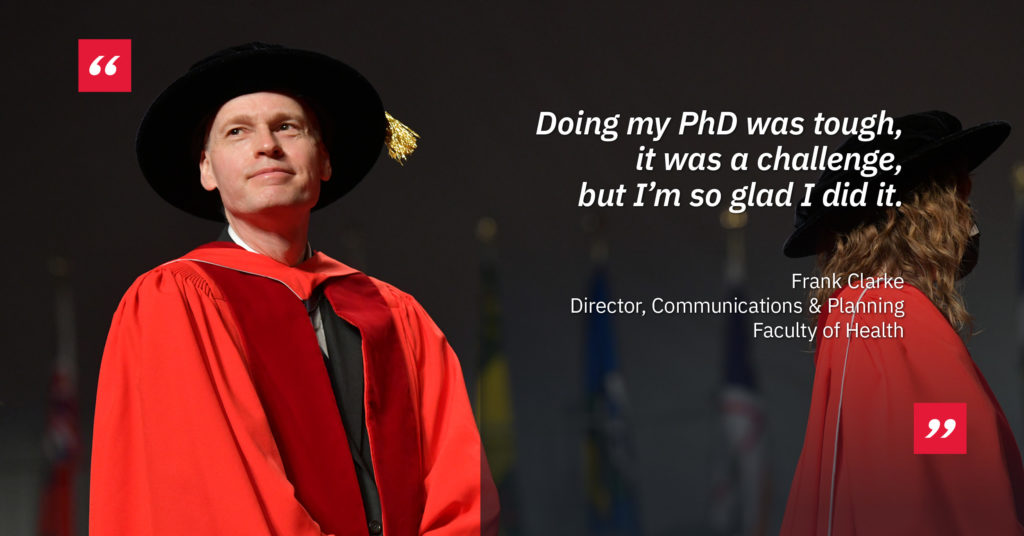
Back in the 1990s I thought about a career in academia which at the time was the conventional thinking: you complete your PhD and apply for academic jobs with the goal to become a professor.
But by my fifth year in the program I had stalled. I couldn’t find a dissertation topic that stuck and that I was passionate about. At the same time tuition had to be paid regardless of whether or not I progressed and I didn’t want to take on a heavy debt load. I was stuck and had no momentum. All I knew was academia, so after leaving the program I felt lost. My wife Susan suggested I try communications, so I took a postgraduate certificate program in public relations at Humber College. It was a great learning experience and very different from academia. Once I graduated from that program, I worked in a few different communications positions before I landed my current position at York in 2011.
After I withdrew from the PhD program, not completing it always nagged at me. Returning to York as a staff member meant I was now eligible for a tuition waiver and could return to my PhD tuition free as a part-time student. I decided to take an academic article I had published back in 2002 as the foundation for a bigger study. I moved from looking at education during the Cold War in the City of Toronto to examining education in this era throughout Ontario. After doing nearly a year’s worth of preliminary research, I found a supervisor, and my dissertation proposal was approved. I dove right into the research, carving out whatever time I could outside of work. I would stay on campus after work and head to the Ontario Archives which was conveniently located on campus and open two evenings a week. I used evenings, weekends, and vacation time to complete the work. It was a lot of work doing the research and writing but this time I had the drive to complete it. I was so fortunate to have had a great supervisor in Marcel Martel and committee members Carolyn Podruchny and Sean Kheraj, and especially the support of my family. It felt great to finally complete it.
When I was on the stage at convocation, waiting to meet the Chancellor and I looked out into the audience and saw my family, the momentousness of the occasion hit me. It was a moving and humbling experience. I felt both joy and tremendous gratitude toward those who supported me on the journey.
Frank Clarke is the Director, Communications & Planning, in the Faculty of Health. He returned to complete his PhD in history at York after withdrawing from the program more than 20 years ago.
